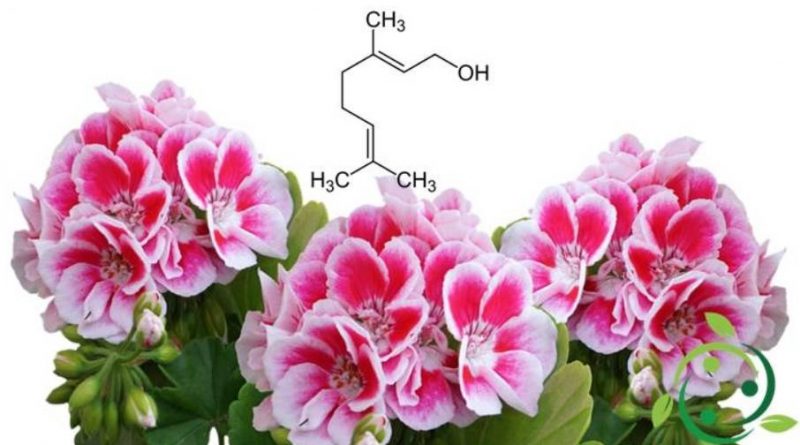Geraniol
Geraniol
The geraniol whose name in the official IUPAC nomenclature is: (E) -3,7-dimethyl-2,6-octadien-1-ol, also known as lemonol, is an aliphatic terpene alcohol with brute or molecular formula: C10H18O.
Geraniol is present in nature in many essences extracted from plants. From a physical point of view it is an oleaginous liquid, colorless, sometimes yellowish, with a pleasant smell, somewhat soluble in ethanol and ether.
The geraniol is extracted from the flowers and leaves of geranium in which it is a present together with other active ingredients, such as: citronellol, linalool, α-terpineol and methyl-eugenol.
Geraniol is also found naturally in other plants such as: verbena, myrtle and melissa officinalis and can be ingested with some foods such as: orange, bergamot, nutmeg, carrot and blueberry.
From an industrial point of view, geraniol is used in perfumery and cosmetics to make lotions, perfumes, soaps and detergents. Furthermore, geraniol is one of the main ingredients of citronella oil and is one of the essences that characterizes the aroma of some Malvasia and other red wines.
The geraniol is, among other things, one of the 200 or more terpenes contained in cannabis. Geraniol is also produced by bees, which exploit its aroma to mark their territories. It releases fruity, floral, sweet and citric aromas.
Geraniol is often used as a flavoring agent in food products, such as ice cream and candy.
Geraniol has powerful antibacterial, antifungal and anti-inflammatory properties. This makes geraniol potentially useful for a wide variety of therapeutic applications, as has been shown by several scientific studies.
Among the most promising therapeutic uses of geraniol, we find its potentially effective properties in the treatment of cancer. Scientific evidence has shown that this terpene has natural antioxidant properties that can discourage the growth of cancer cells from numerous types of cancer.
According to a 2005 study published in the journal Biochemical Pharmacology, geraniol could inhibit the proliferation of cancer cells of MCF-7 breast tumors.
A recent study published in 2016 in the Journal Cancer Medicine showed that geraniol can also inhibit prostate cancer cancer cells, altering the expression of the main genes involved in cell growth. This property would prevent cancer cells from spreading to other parts of the body.
Its ability to effectively inhibit the growth of some fungi has also been demonstrated. Moreover, its antiviral properties make it particularly effective in the therapeutic field. This makes geraniol a potential agent with which to treat a wide range of symptoms and health problems, from a common cold to inflammatory disorders.
A study published in the Journal of Neuroscience Research has shown that geraniol also acts as a neuro-protective agent. This would make geraniol particularly effective in the treatment of diabetic neuropathies.
Geraniol also appears to have chemopreventive properties against certain neoplasms and cardiovascular diseases.
One of these is the modulation of cholesterol levels by action on the enzyme HMG-CoA reductase. Furthermore it can directly modulate the permeability of the cell membrane, the synthesis of polyamines (endogenous proliferation mediators) and the activation of cyclo-dependent kinases.
Experimentally it is active towards intestinal tumors and breast cancer, and synergizes with drugs active against these types of neoplasms (such as 5-fluorouracil).
Warning: The information given is not medical advice and may not be accurate. The contents are for illustrative purposes only and do not replace medical advice.

